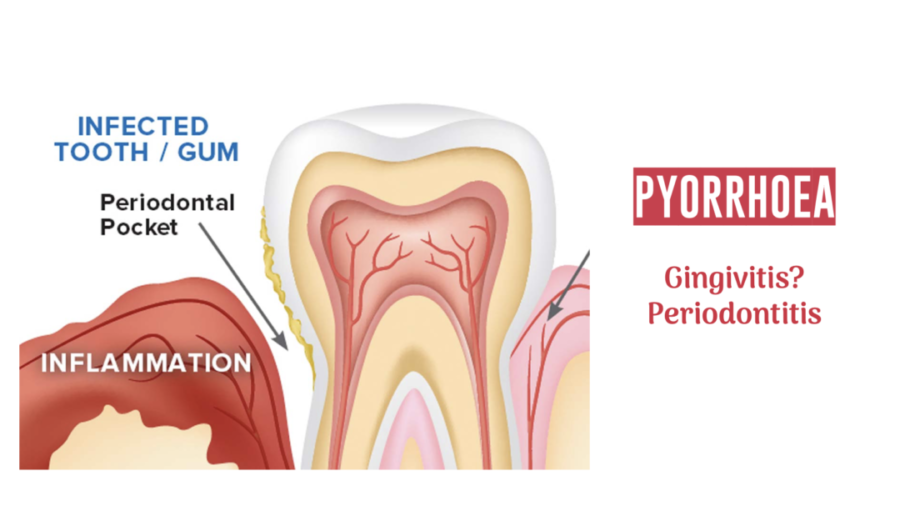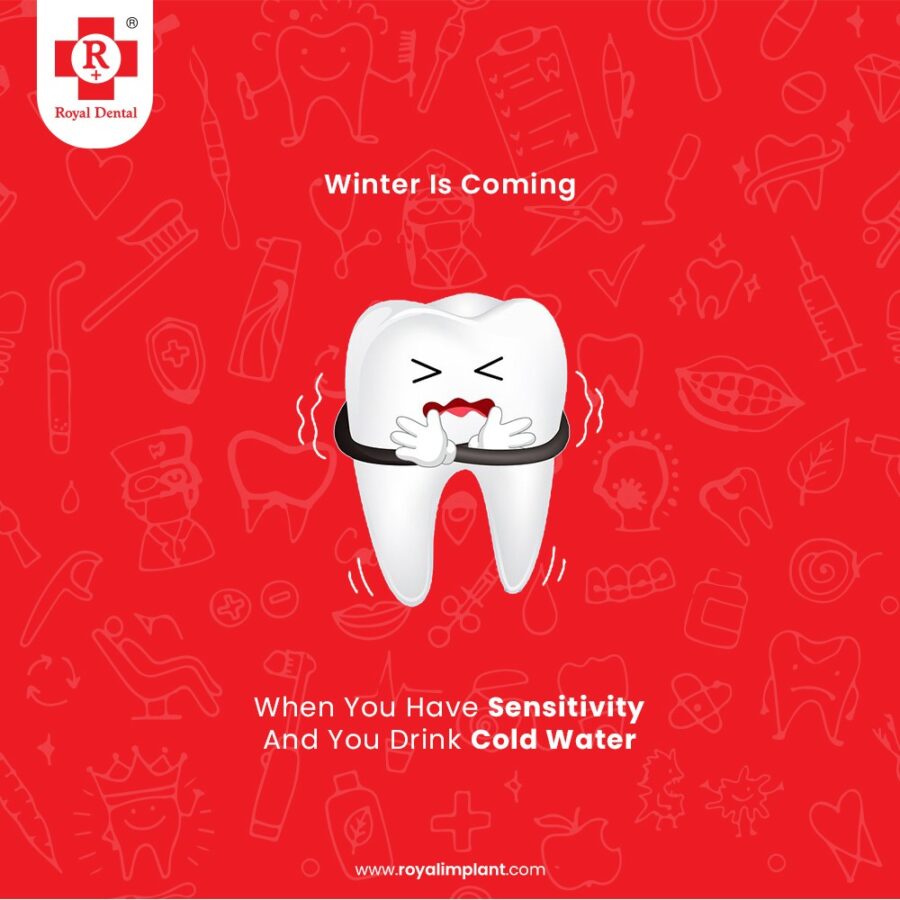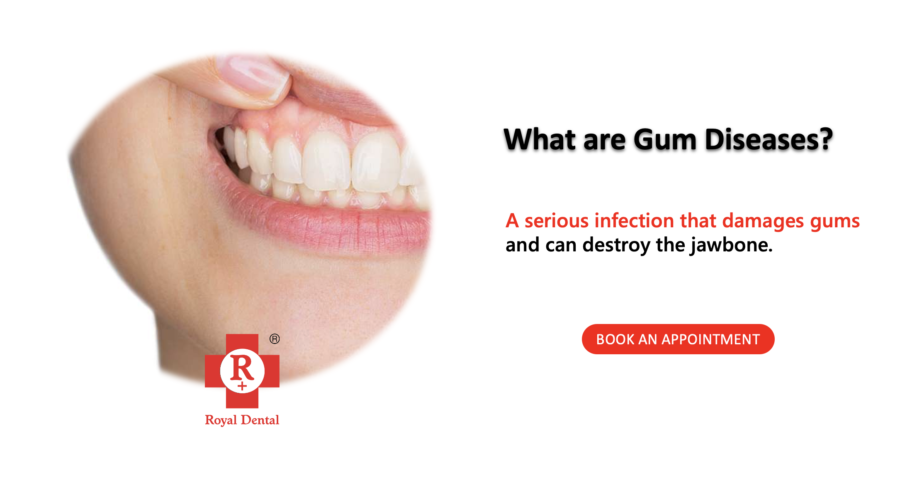Ever find yourself asking, “Why are my gums so sensitive all of a sudden?” It’s a typical worry that many individuals encounter unintentionally. You could be going about your day, eating your favorite foods, when all of a sudden you bite into something hot or cold, and it gives you a stinging twinge of discomfort. You’re not alone in this, so don’t worry. There are a number of reasons why gums can become suddenly sensitive, from small irritants to more significant dental problems. You can address the issue and find relief if you understand the causes of this sensitivity. We’ll look at some potential reasons for unexpected gum sensitivity in this blog post, along with some solutions. Now let’s get started and solve the mystery of your sensitive gums!
Causes of Sudden Gum Sensitivity
Gum sensitivity is frequent, but when it happens unexpectedly, it might catch us off guard. Effective management requires an understanding of the numerous mechanisms underlying this sudden discomfort. Below is a summary of the possible causes:
Dental Hygiene Habits and Their Impact:
Your gum health is greatly influenced by the way you clean your teeth. Plaque accumulation brought on by insufficient brushing and flossing can aggravate gum irritation and create sensitivity. Aggressive brushing methods and the use of toothbrushes with harsh bristles can also cause gum recession and enamel degradation, which exposes the teeth’s delicate underlying layers.
Diet and Its Role in Gum Health
Our gum health is directly impacted by the foods and drinks we drink. An acidic or high-sugar diet can encourage the growth of dangerous oral bacteria, which can cause gum inflammation and plaque development. Furthermore, inadequacies in vital nutrients, such as vitamin C, can deteriorate gum health, increasing their susceptibility to irritation and illness.

Medical Conditions Affecting Gum Sensitivity
Gum sensitivity can be affected by a number of illnesses. Gums are more vulnerable to irritation and inflammation during hormonal changes, such as those that occur during pregnancy or menopause. Diseases like diabetes that weaken the body’s ability to fight off infections can also exacerbate gum disease and sensitivity.
Potential Dental Procedures Causing Sensitivity
Although dental operations are frequently required to preserve oral health, gum discomfort may occasionally result from them. Deep cleaning and dental whitening procedures might irritate the gums temporarily while they heal. With care and time, this sensitivity usually goes away.
Environmental Factors Triggering Gum Sensitivity
Unexpected gum sensitivity can also be caused by outside variables in our surroundings. In addition to raising the risk of gum disease, smoking, for example, also reduces blood flow to the gums, which increases their sensitivity and irritation. Likewise, exposure to cold or dry air can worsen gum sensitivity, which already exists, increasing discomfort.
Common Symptoms of Sensitive Gums
Gum sensitivity can present itself in a number of ways, frequently resulting in pain and annoyance. Understanding the typical symptoms might assist in detecting the problem early and implementing the necessary solutions. The following are typical indicators of gum sensitivity:
Pain While Eating or Drinking
Eating or drinking with pain or discomfort is one of the main signs of sensitive gums. It can be painful to eat or drink certain things if you have sensitivity to hot, cold, sweet, or acidic foods and beverages since it can irritate your gums.
Bleeding Gums
Bleeding gums, especially when brushing or flossing, is another typical sign of gum sensitivity. Especially when the gums are pressed upon by dental care procedures, gum inflammation—which is frequently linked to sensitivity—can make the gums sensitive and prone to bleeding.

Receding Gums
Additionally, gum recession—a condition in which the gum tissue recedes from the teeth and exposes the sensitive roots—may coexist with sore gums. Teeth that have receding gums appear longer and are more susceptible to decay and damage, in addition to increasing sensitivity.
Tooth Sensitivity
Tooth sensitivity, which occurs when teeth respond to hot, cold, sweet, or sour foods, and sensitive gums frequently coexist. This sensitivity is usually felt in one or more teeth and can range in intensity from a slight discomfort to a strong, searing pain.
How to Treat Sensitive Gums?
Regular Dental Check-ups and Cleanings
To monitor and maintain the health of your gums, make an appointment for routine dental cleanings and check-ups. Gum irritation and sensitivity are decreased by professional cleanings that help remove plaque and tartar accumulation.
Gentle Brushing Techniques and Suitable Toothbrushes
Use a soft-bristled toothbrush and gentle brushing techniques. Hard-bristled toothbrushes and aggressive brushing should be avoided since they might aggravate gum irritation and erode enamel. Select a toothbrush made especially for teeth and gums that are sensitive.
Proper Flossing Methods
Plaque and other debris must be removed from in between teeth and along the gum line by flossing. When flossing, make moderate, back-and-forth motions rather than forceful ones that can irritate the gums. Frequent flossing lessens sensitivity and prevents gum disease.

Desensitizing Toothpaste and Mouthwash Options
For mouthwash and toothpaste designed for sensitive gums and teeth, switch to desensitizing products. Fluoride and potassium nitrate, two components of these products, help strengthen tooth enamel and inhibit pain impulses, which gradually lessen sensitivity.
Dietary Adjustments for Improved Gum Health
To promote gum health and lessen sensitivity, modify your diet. Eat fewer sweet and acidic foods and drinks, as these might aggravate gum inflammation and cause plaque accumulation. To support gum health, instead concentrate on eating a well-balanced diet full of fruits, vegetables, and lean proteins.
Treatments like Fluoride Applications or Dental Sealants
To strengthen dental enamel and reduce gum sensitivity even further, think about receiving professional treatments. To strengthen the enamel and lessen sensitivity, your dentist might suggest applying fluoride treatments. Additionally, dental sealants can be used to shield teeth from sensitivity and deterioration.
Prevention Tips for Sensitive Gums
Maintain Good Oral Hygiene Practices
Gum sensitivity can be avoided with regular dental hygiene. Using a soft-bristled toothbrush and fluoride toothpaste, brush your teeth at least twice a day. Floss every day to clear the gums and spaces between your teeth of plaque and debris. To further aid in lowering bacteria and avoiding gum inflammation, include antimicrobial mouthwash in your daily regimen.
Avoid Acidic and Sugary Foods
Foods high in acidity and sugar can aggravate and inflame gum tissue. Consume fewer sugar-filled snacks and candies, as well as acidic drinks like soda and citrus juices. Choose more nutritious foods instead, such as whole grains, fruits, and vegetables, which enhance overall health and gum health.
Use a Soft-Bristled Toothbrush
Abrasive brushing can harm the gums and enamel, so look for a toothbrush with gentle bristles. Plaque and bacteria can be eliminated with gentle brushing that uses gentle, circular motions that won’t irritate the skin. Twice a year, or sooner if the bristles start to fray, replace your toothbrush.
Consider Using a Mouthguard for Teeth Grinding
Wear on enamel and gum sensitivity can be caused by bruxism, or teeth grinding. A mouthguard might help shield your teeth and gums at night if you grind your teeth while you sleep or if you have jaw pain or tension. Your dentist will fit and prescribe a mouthguard that is both comfortable and safe.
Stay Hydrated to Promote Saliva Production
By removing food particles, neutralizing acids, and shielding the gums and teeth, saliva plays a critical role in preserving oral health. Keep your mouth moist and encourage salivation by staying hydrated throughout the day by drinking lots of water. Avoid excessive alcohol and caffeine intake, as they can cause gum irritation and dry mouth.
Recommended Toothpaste for Sensitive Gums
Key Ingredients in Sensitive Toothpaste
- Potassium nitrate: This ingredient helps block pain signals transmitted by nerve endings in the teeth, reducing sensitivity.
- Fluoride: Fluoride strengthens tooth enamel, making it more resistant to acid erosion and reducing sensitivity.
- Strontium Chloride: Strontium chloride has desensitizing properties and can help alleviate tooth sensitivity.
- Arginine: Arginine is an amino acid that promotes the remineralization of tooth enamel and helps repair damaged areas.
- Calcium Phosphate: Calcium phosphate remineralizes tooth enamel, strengthening it and reducing sensitivity.
Product Recommendations for Different Needs and Preferences
- Sensodyne Pronamel: This toothpaste is specifically designed to strengthen enamel and protect against acid erosion, making it suitable for individuals with sensitive gums and enamel wear.
- Colgate Sensitive Pro-Relief: Colgate Sensitive Pro-Relief toothpaste contains arginine and calcium carbonate to provide rapid relief from tooth sensitivity and protect against future sensitivity.
- Crown White: The products are designed specifically to meet individuals with artificial teeth’ unique needs.
- Tom’s of Maine Rapid Relief Sensitive Toothpaste: This natural toothpaste contains potassium nitrate and fluoride to relieve tooth sensitivity and protect against cavities, without artificial flavors, colors, or preservatives.
How to Incorporate Sensitive Toothpaste into Your Daily Oral Care Routine
Brush Twice Daily: Brush your teeth with sensitive toothpaste at least twice a day, preferably after meals, using gentle circular motions.
Use a Soft-Bristled Toothbrush: Pair sensitive toothpaste with a soft-bristled toothbrush to avoid further irritation to sensitive gums and enamel.
Floss Daily: Don’t forget to floss daily to remove plaque and debris from between the teeth and along the gumline.
Follow with Mouthwash: Rinse your mouth with an antimicrobial mouthwash to help reduce bacteria and promote gum health.
Regular Dental Check-ups: Schedule regular dental check-ups and cleanings to monitor your oral health and address any concerns with your dentist.
Conclusion
In conclusion, a number of variables, such as poor food, medical disorders, and poor oral care, can cause abrupt sensitivity of the gums. It’s critical to take adequate dental care of this problem as soon as possible. Frequent examinations, mild dental care routines, and the use of appropriate products, such as desensitizing toothpaste, can reduce symptoms and stop more discomfort. Recall that sustaining total oral health requires proactive control of gum health. In order to have a brighter, healthier smile, everyone is urged by Dr. Chirag Chamria to prioritize their gum health and to seek professional guidance for persistent concerns. We hope the response to your query, “Why are my gums so sensitive all of a sudden?” was obtained.






